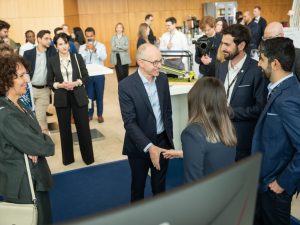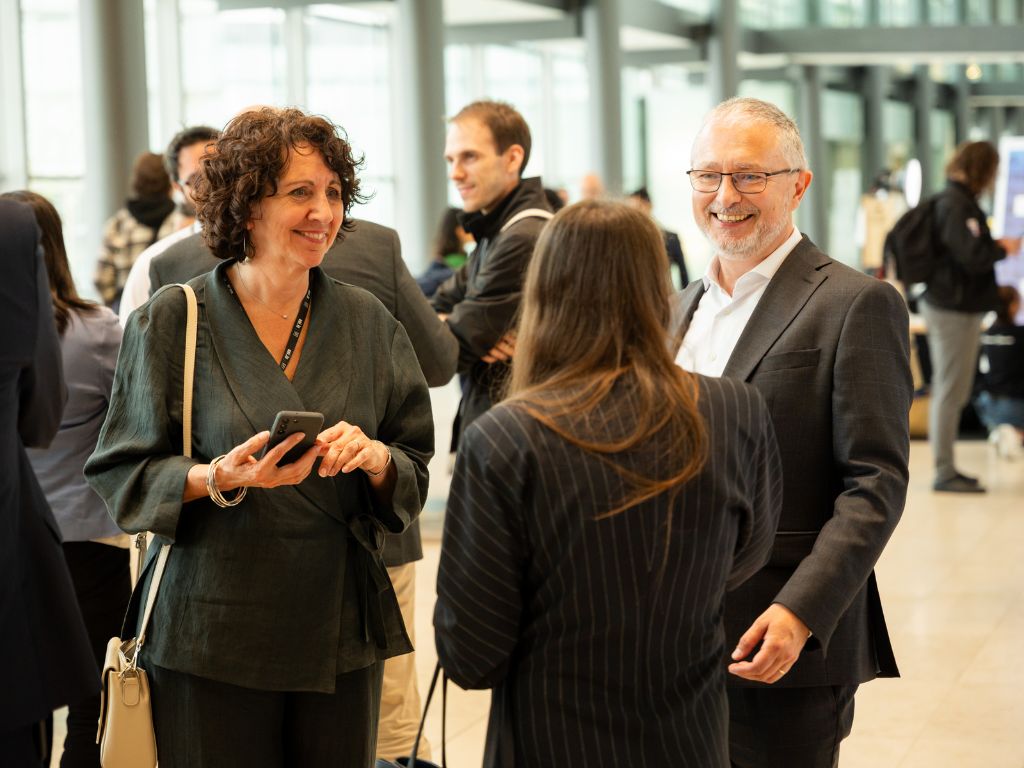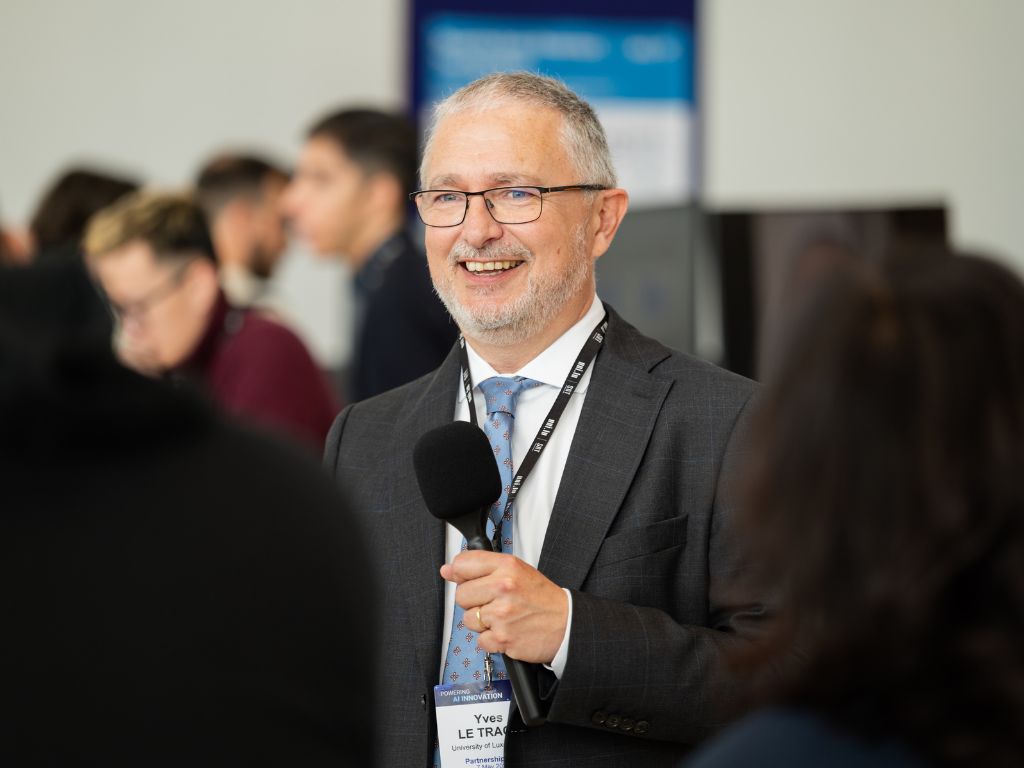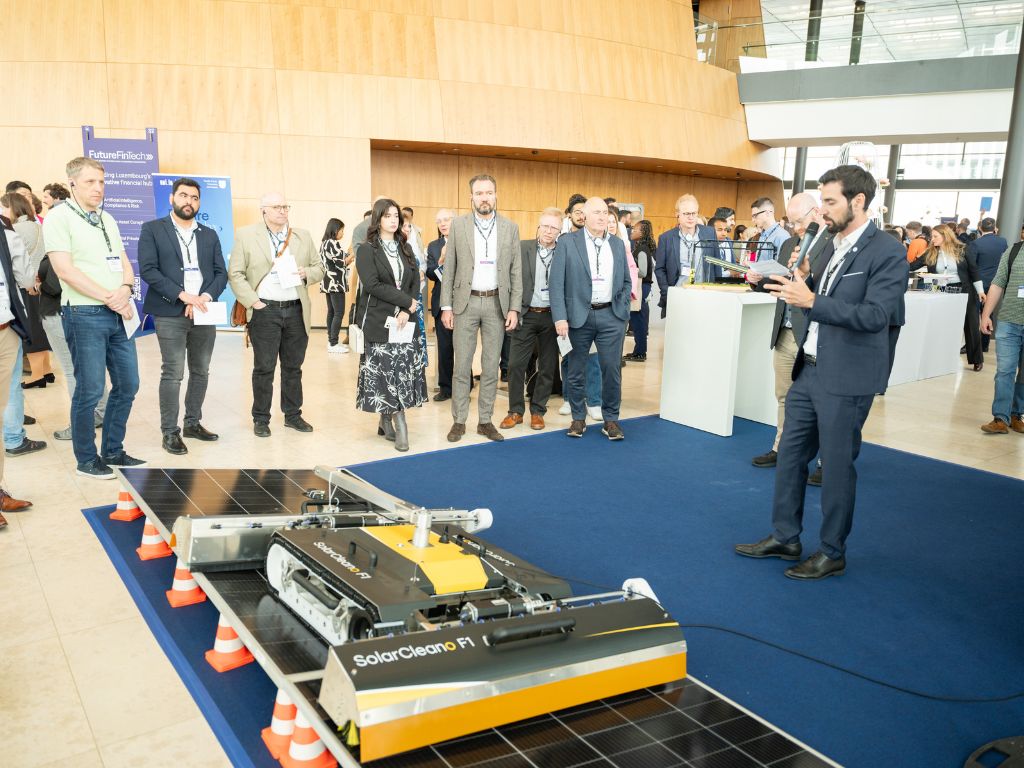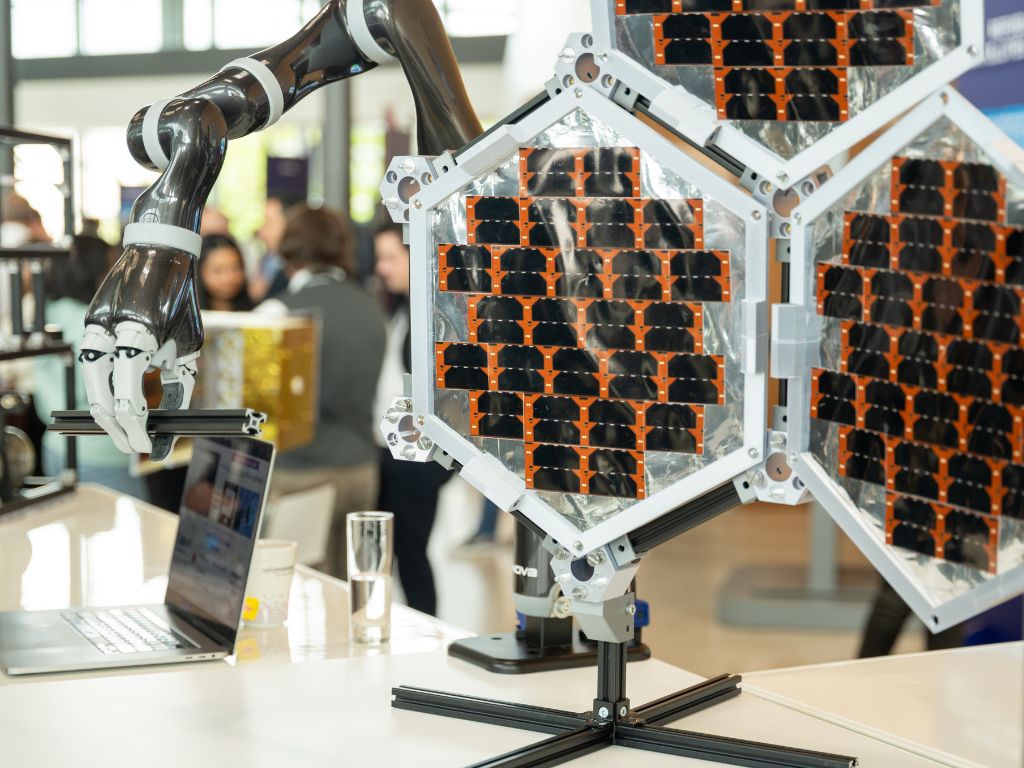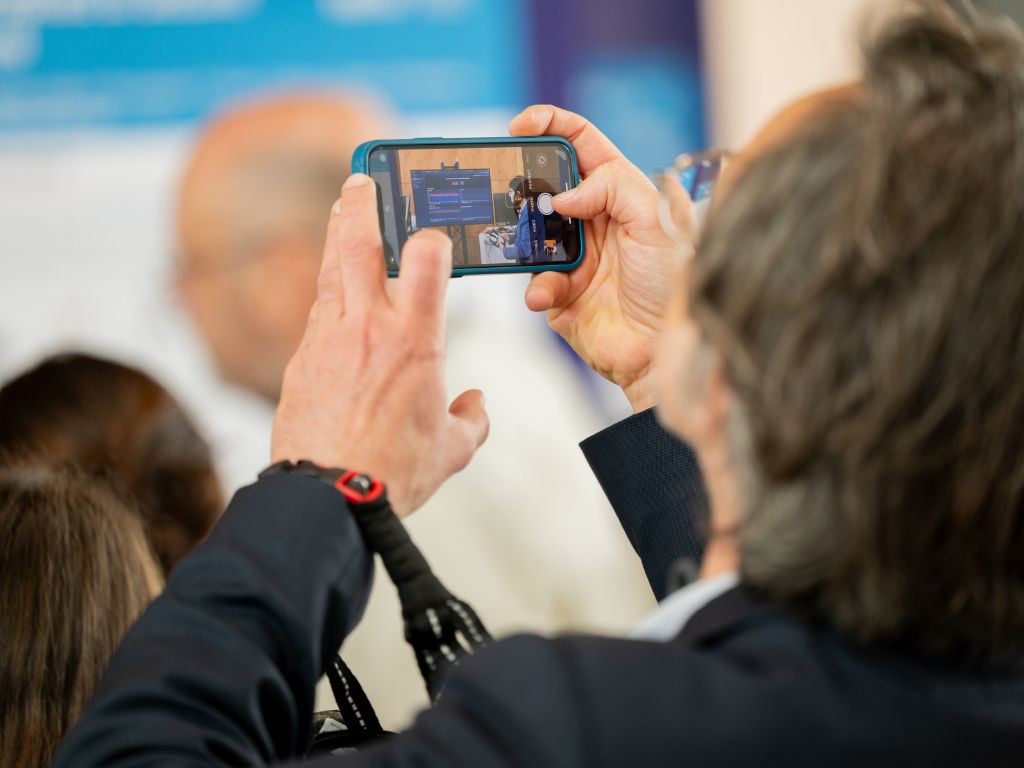AI is everywhere in our daily lives, but also in scientific research. The SnT Partnership Day 2025 showcased concrete projects.
Artificial intelligence is no longer a distant concept. It’s reshaping how we work, communicate, and innovate. On 7 May 2025, SnT’s annual Partnership Day brought together 700 participants from research, industry, and government representatives at the European Convention Centre Luxembourg (ECCL) to explore how AI is moving from theory to practice.
SnT is the University of Luxembourg’s tech research hub. The event highlighted how research partnerships are delivering real-world impact.
The event featured opening speeches from Luxembourg’s Prime minister Luc Frieden, the Vice Rector for Partnerships and International Relations Marie-Hélène Jobin, the Director of SnT, Yves Le Traon and the Head of SnT’s Technology Transfer Office, Carlo Duprel.
In her opening speech, the Vice Rector for Partnerships and International Relations Marie-Hélène Jobin highlighted the growth in collaborative research funding and commended SnT’s achievement: “SnT is a role model for the University landscape, well done guys”.
Prime Minister Luc Frieden emphasised the importance of AI and announced the forthcoming presentation of a national strategy on this topic: “We want to make sure that Luxembourg is on the map of researchers in AI. Especially now, when academic freedom is being challenged in some places”.
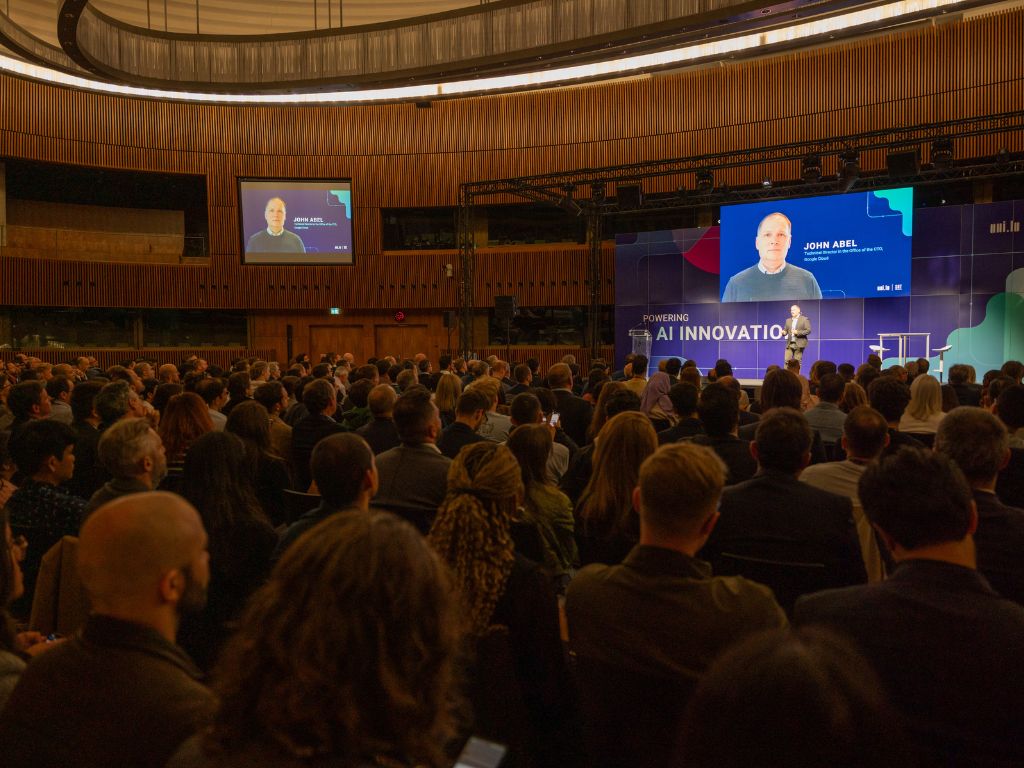
A keynote from John Abel, Senior Technical Director at Google Cloud, shared his personal story of overcoming dyslexia with the help of AI and emphasises the importance of creativity and learning.
“AI does two things incredibly well. One, it allows you to remove toil and friction. For me that was reading and writing. Two, it allows you to scale. In Luxembourg today, you have the perfect ecosystem. You are agile. You have one of the largest financial sectors, is the biggest part of your GDP. You have a government that’s clearly articulated their investment, and you have amazing academic capabilities in the SnT with amazing partnerships.”
Earlier this year, Google announced the creation of a new Centre of Excellence and a Chair in Sovereign AI at SnT – a move that strengthens Luxembourg’s position as a hub for AI and innovation.
Platform for strategic vision
The day opened with remarks from Carlo Duprel. He emphasised how SnT’s approach over 16 years is similar to the University 4.0 concept. Many organisations, like the European Commission, are now promoting this idea. “I’m very happy to say that SnT is precursor of a University 4.0, and we are very much aligned with the needs of Luxembourg” he commented.
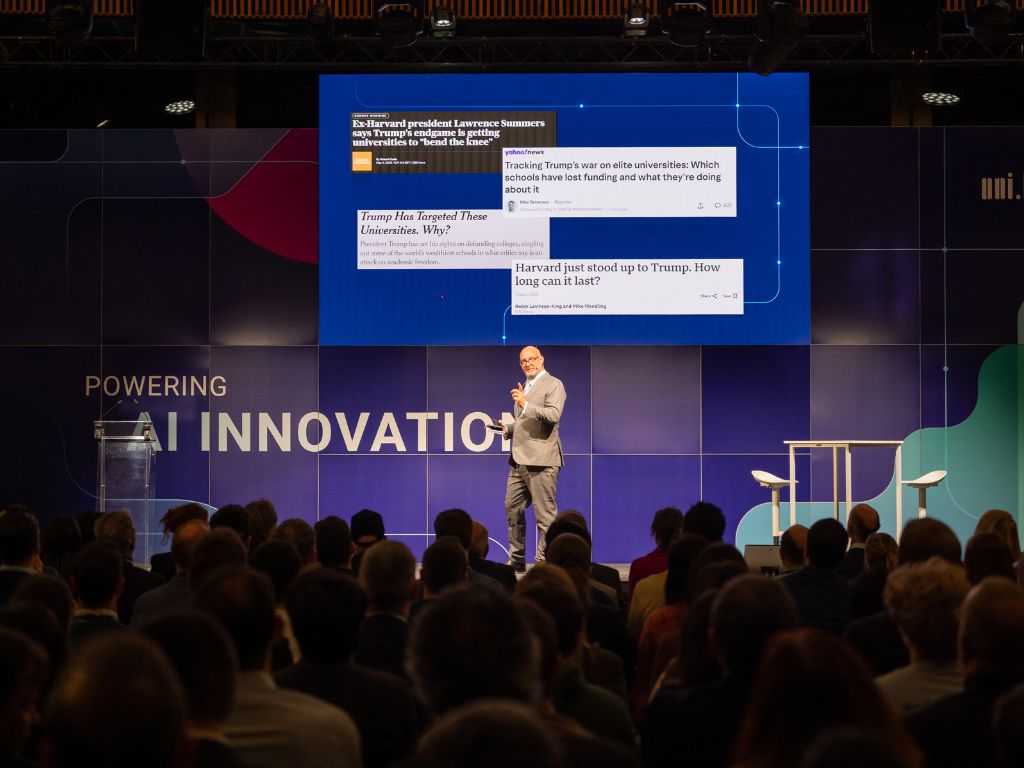
Attendees were also addressed by Yves Le Traon, Director of SnT. “Powering AI innovation is something that we have been doing for more than a decade at SnT. More than 70% of our paper involve the use and adaptation of machine learning and AI technologies to practical problems to different application areas like space, cybersecurity, and many more.”
Five flashtalks, five visions of AI
Five researchers from SnT took to the stage for lightning talks that demonstrated AI’s versatility across different fields:
Stolen faces, stolen futures was the thought-provoking talk given by Nesryne Mejri. The Tunisian researcher conducts research with Post Luxembourg, where she is developing unsupervised deepfake detection systems. “When our digital identities can be manipulated without our consent, we need to rethink what trust means in the online space,” she explained. Her work addresses growing concerns about synthetic media potentially undermining digital identity security.
Fred Philippy tackled the challenge of language inequality in AI with his presentation NLP for low-resource languages. The Luxembourgish PhD student who conducts his research with Zortify says “Many of the world’s languages simply don’t have enough data to train large language models.” His work explores innovative approaches that don’t require massive datasets, potentially democratising access to language technologies.
Space innovation took centre stage with aerospace engineer Citlali Bruce Rosete‘s talk Tiny satellites, huge opportunities. Drawing on her experience with Sweden’s MIST CubeSat project, the researcher from Mexico now researches picosatellite swarms. She demonstrated how multiple apple-sized satellites working in unison can accomplish tasks previously requiring much larger spacecrafts. “The future of space exploration will be collaborative—both between people and between the satellites themselves,” Bruce Rosete said.
Iranian researcher Shiva Hanifi presented Turning sunlight into impact showcasing her work on solar panel optimisation with SnT partner SolarCleano. With a background in control engineering and human-robot interaction from the Italian Institute of Technology, Hanifi now applies machine learning to detect defects in solar panels. “Small, smart interventions in renewable energy systems can make a huge difference in our transition to sustainable power,” Hanifi explained.
Gregory Nain concluded the session with his talk Spinning off is just the beginning recounting the journey of DataThings—one of SnT’s earliest spin-offs. “Twelve years ago, companies already understood that big data had value, but Luxembourg’s supercomputer Meluxina was only going to be available in 2021,” Nain recalled. His story illustrates how research can evolve into commercial ventures when researchers identify market opportunities.
Research in action: 30+ demos
- 6G infrastructure development for Luxembourg’s digital future
- AI-powered tools for detecting deepfakes and synthetic media
- Robotics platforms enabling autonomous navigation in space
- Cybersecurity solutions tailored for critical infrastructure
- Smart traffic systems designed to reduce emissions in cities
These projects reflect SnT’s approach to applied research – building tools that are not only innovative, but also deployable in real-world settings.
Do you want to get more insights? Have a look at our photo gallery of the event.
People in this story
Prof Yves LE TRAON
Director of the Interdisciplinary Centre for Security, Reliability and Trust
-

-

-
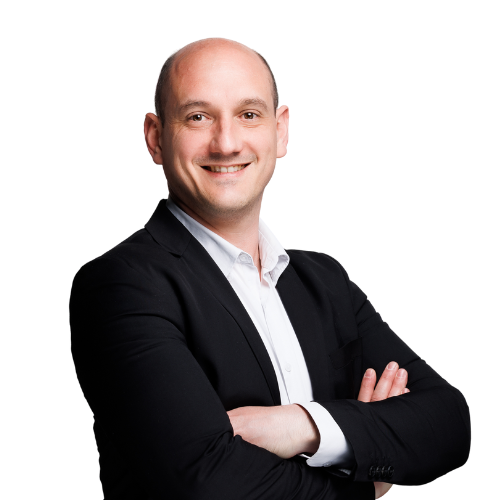
Grégory Nain
